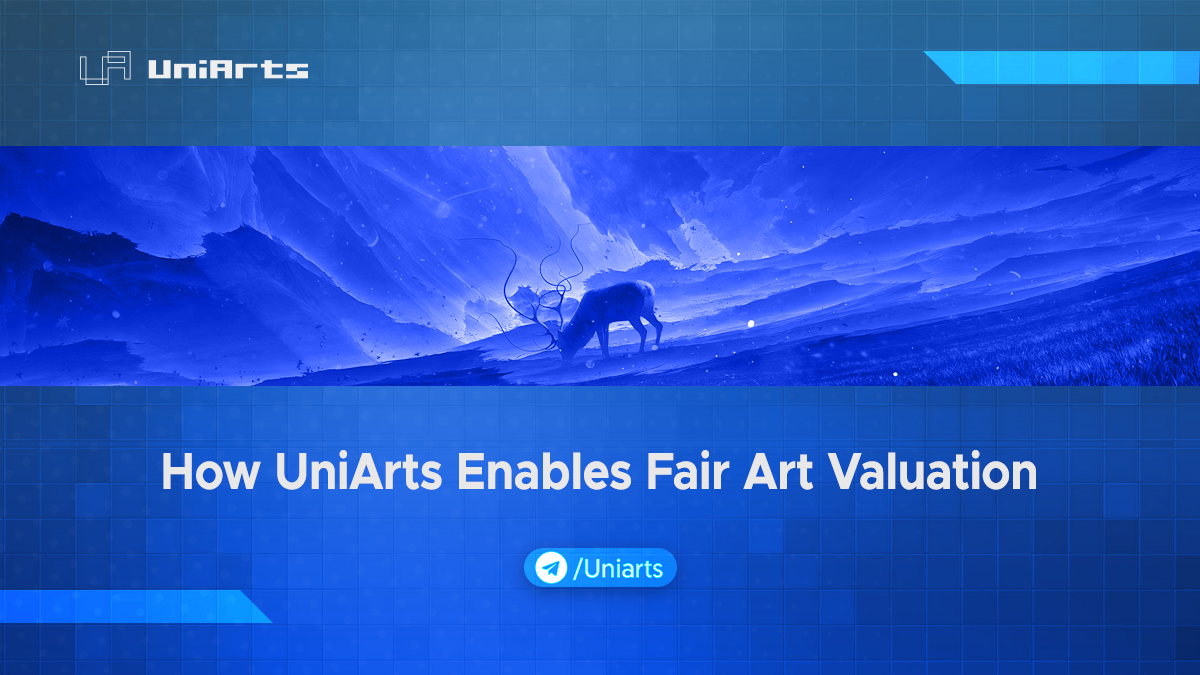
In a world where decentralization is gaining popularity and people’s voices are getting louder, UniArts is aiming to implement these concepts and principles into its project; a platform where art is better appreciated.
What Makes Art Valuable?
What determines the value of art is a rather tricky subject, for which there are a variety of conflicting yet valid and sound arguments. Fundamentally speaking, demand is what determines the value of one’s work, but the question is: what creates a demand?
What elements of art lead someone to want to own a piece, so much so that they’d pay for some version of it? Some argue that art is a subjective matter, and that each individual sees something different in a piece. Others like to argue that it is the objective elements that have the biggest say in the quality of a work.
Some think that galleries nowadays do not represent the interests of art but are rather driven by profits and personal interests. They do not appreciate how small groups of elite connoisseurs have a significant say in what constitutes good art.
The Truth & The Problem
The truth is that the matter of valuing art is complicated. In a single art piece, an individual may appreciate the craftsmanship and raw skill presented, while another may be moved by the creativity and message behind the piece. Some people prioritize certain elements over others, and some are drawn towards specific genres and subjects.
A piece of art can excel in certain aspects, but may ultimately fail in receiving a fair valuation for lacking in other areas that matter more to the audience that reviewed it. Or conversely, it can see a high valuation due to high demand driven by different people who appreciate the different sides of the same work.
So what’s the problem? The problem is that most art pieces don’t have the chance to be reviewed by the masses, and are often valued prematurely. The higher the number of people reviewing a piece, the fairer its valuation becomes; why? Because if the demand for art is driven by opinions and taste, then it stands to reason that to get the most accurate and fair value for a work, you will need as many people as possible witnessing said piece.
The Solution
The solution is rather simple, and it is called: the democratization of arts. It is where many people of varying backgrounds use their voices and opinions for the improvement and progress of the art community, providing fair value and rewards to deserving artists based on the opinions of the masses, rather than those of a select few.
It is exposing new works to receive honest feedback, and the chance to have them displayed for the world to see. It is the ability to buy and sell works freely, with royalties of future sales given to the artists. It is offering incubation for new and upcoming talented artists that can make a splash in the worldwide community.
How It’s Done
UniArts delivers this solution neatly with its NFT voting mechanism, a system designed to achieve the democratization of arts using blockchain governance and NFTs. Essentially, users on UniArts who stake UARTs (the native token) can become nominators, one of several roles in the governance structure of the platform, and by doing so can vote on newly submitted NFTs.
Works of art are turned into an NFT by the creator, which they bind to validator (curator) nodes. Candidates are then invited by creators as nodes in order to receive votes, and validators (curators) promote NFTs and update NFTs bound with nodes, in addition to setting up nodes themselves.
Nominators and validators both stake UARTs, but only nominators vote on their preferred NFTs, the top 21 of which are selected as validators, and receive block rewards for their efforts. NFT owners purchase and collect NFTs, and can pin their NFT on their address to earn UART tokens.
Responsible for maintaining security is the fisher, who minimizes the misbehavior of curators and creators by slashing the UARTs of the misbehaving entities for actions such as offline nodes and incorrectly minted NFTs.
The End Result
This system allows for a smooth process of decentralizing the valuation and appreciation of art, democratizing it, and rewarding those that are deemed worthy by the community as a whole.
Where in the past such works wouldn’t have seen the light of day, or have seen an unfair and unjust valuation, soon, that will be a problem of the past; a problem that hopefully future generations will not be able to relate to.
Artists deserve fair judgement for their hard work and creativity, and with UniArts, they have those very chances, a chance to connect with enthusiasts and connoisseurs to establish a fair price based on well-established demand.
About UniArts
UniArts is a multi-network NFT ecosystem with substrate-developed main-net as well as EVMS based smart contracts for NFT infrastructures.It also provides crowd voting incentives, DAO curation,and art grant to help better achieve the democratization of art.
Abigail is an English novelist who began her career as an actress. Her second book, Golden Boy, was described as a “dazzling debut” by Oprah’s Book Club.
Disclaimer: The views, suggestions, and opinions expressed here are the sole responsibility of the experts. No journalist was involved in the writing and production of this article.
